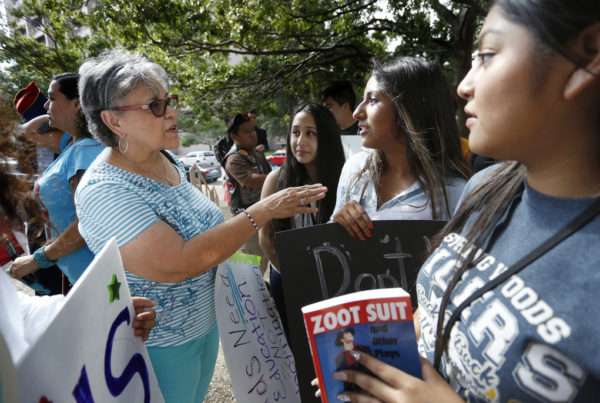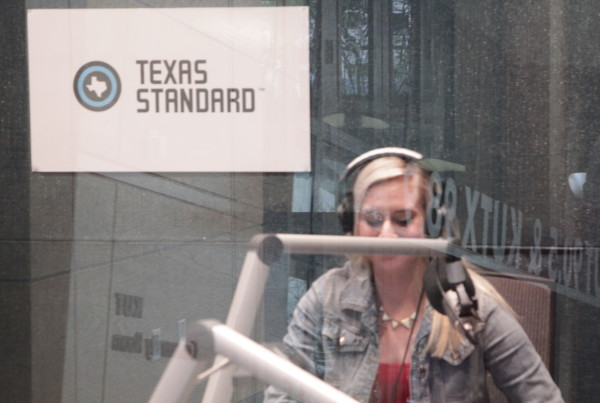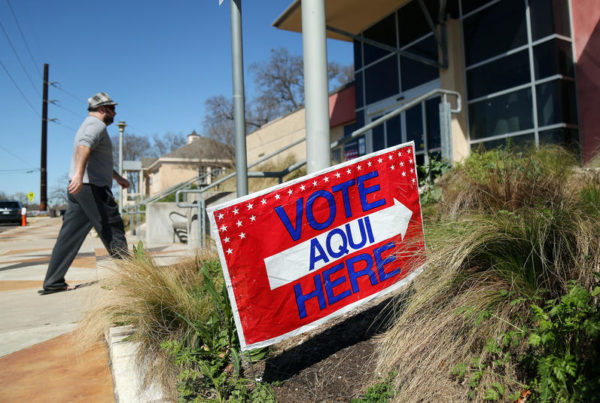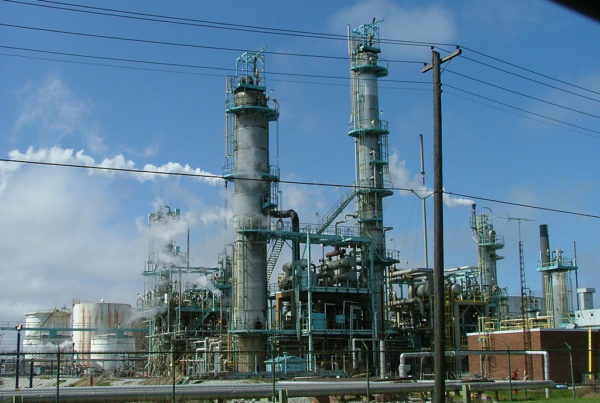Tuesday is midterm Election Day. Of course you’ve heard about the heated Texas Senate race, and some of the state’s more competitive congressional districts, the governor’s race. But there are also several statewide races on the ballot this year that aren’t getting much attention – like railroad commissioner. Current commission chairman, Republican Christi Craddick, is running for a second term against Democrat Roman McAllen and Libertarian Mike Wright.
Why care about the Railroad Commission? Well, name aside, its actions can directly affect your life, no matter where you live in Texas.
The Texas Railroad Commission, or RRC, is the state’s oldest regulatory agency, and one of its most powerful. What does it regulate? Post, Texas resident Eric Eller makes an obvious guess.
“Railroads?” Eller says.
Trains roll through Post each day near the store where Eller works. But that’s not the right answer. At least not anymore. Today, the three-member commission regulates all things oil and gas, and indirectly controls a huge swath of the state’s economy. It’s also charged with regulating mining and pipelines, and citing companies for violating the rules, and so on. This surprises Eller.
“That’s wild. So it’s just kind of grandfathered in? You definitely wouldn’t look up the Railroad Commission to call on a gas problem or an oil issue. Nobody would ever think to look that up,” he says.
The commission has also been dealing with an uptick in earthquakes linked to fossil fuel production. A seismologist joined the staff last year, and the commission recently established rules aimed at reducing quakes. The RRC now has the power to shut down activity it thinks could potentially cause earthquakes.
All around Post, pump jacks dot the landscape. So many people do know what the RRC does. Like Janie Lopez, the office manager of a local museum.
“I know we have some people that come through here probably on a daily basis,” Lopez says.
The OS Museum is the legacy of Giles McCrary, a successful rancher and philanthropist. His mineral rights brought him wealth through oil and gas royalties. The eclectic collection is filled with treasures from his trips around the globe.
Lopez says she’s fine with the Railroad Commission’s name just the way it is.
“If it ain’t broke why fix it,” she says. “The name should not deter from what its obligations are, and if it is to clean up the messes that we make, so be it.”
Most Texans say they’d support changing the commission’s name, but lawmakers in Austin shot down recent proposals to do that. And Austin’s where we head next. The Railroad Commission’s responsibilities don’t end where the oil fields do. Another duty of the commission might impact you every time you go to the mailbox and open your gas bill. In Texas, electric rates are determined by an agency called the Public Utility Commission. Not so, natural gas rates.Texas is pretty unique in that gas rates are the domain of the Railroad Commission.
“Voters need to understand that every single residential consumer in this state – they’re impacted by what the Railroad Commission does,” says Geoffrey Gay, a lawyer who represents cities and consumers who want to keep their gas and electric rates down. Gay says the Railroad Commission lets them get too high.
“I believe that Texas is not very favorable for consumer interest,” he says.
He thinks this is because railroad commissioners can take campaign contributions from the very companies they regulate. Before the last legislative session the idea came up to move natural gas rate responsibilities over to another agency. But the Railroad Commission opposed that. Here’s current Commission Chair Christi Craddick talking to lawmakers back in 2016.
“We firmly believe that contested hearing and gas utility regulations are core responsibilities of the commission,” she said.
One reason, she said, is because regulating gas rates is tied up with regulating gas pipeline safety, which is another duty of the commission. But recently, the commission come under fire for how it has done that job.
“Occasionally people will say, ‘oh yeah you live on that street that blew up!’” says north Austin resident Jack Graves. About six years ago he was setting out to walk his dog when a broken gas line caused the house next-door to explode.
“I heard.. like all the air just being taken away and his roof just exploded off into the street right in front of me,” Graves says.
One neighbor was killed, another was injured. It was one of more than two-dozen homes the Dallas Morning News reports have blown up since 2006. These explosions have prompted criticism that the Railroad Commission isn’t aggressive enough in punishing companies for safety violations.
Now all that is to say – don’t let the name confuse you. Like any other statewide office on the ballot in this election, careful consideration of candidates for a seat on the RRC is worth your time.
















